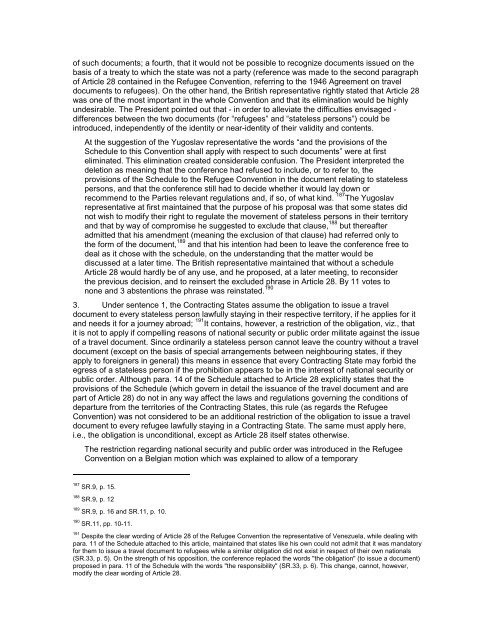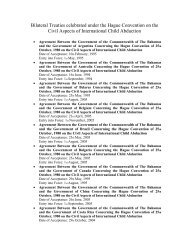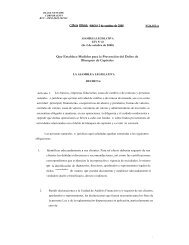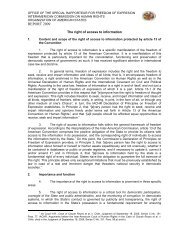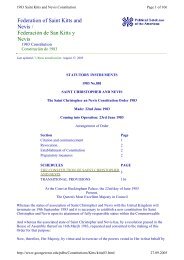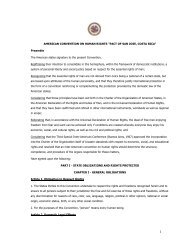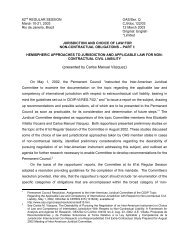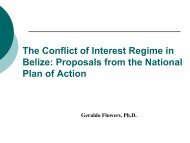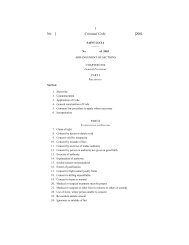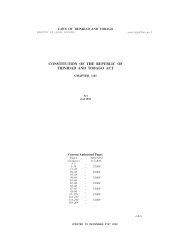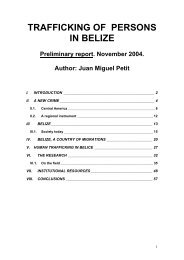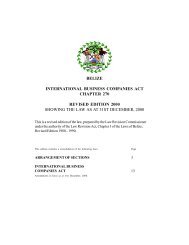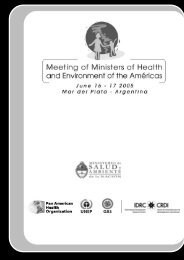CONVENTION RELATING TO THE STATUS OF ... - Refworld
CONVENTION RELATING TO THE STATUS OF ... - Refworld
CONVENTION RELATING TO THE STATUS OF ... - Refworld
You also want an ePaper? Increase the reach of your titles
YUMPU automatically turns print PDFs into web optimized ePapers that Google loves.
of such documents; a fourth, that it would not be possible to recognize documents issued on the<br />
basis of a treaty to which the state was not a party (reference was made to the second paragraph<br />
of Article 28 contained in the Refugee Convention, referring to the 1946 Agreement on travel<br />
documents to refugees). On the other hand, the British representative rightly stated that Article 28<br />
was one of the most important in the whole Convention and that its elimination would be highly<br />
undesirable. The President pointed out that - in order to alleviate the difficulties envisaged -<br />
differences between the two documents (for “refugees” and “stateless persons”) could be<br />
introduced, independently of the identity or near-identity of their validity and contents.<br />
At the suggestion of the Yugoslav representative the words “and the provisions of the<br />
Schedule to this Convention shall apply with respect to such documents” were at first<br />
eliminated. This elimination created considerable confusion. The President interpreted the<br />
deletion as meaning that the conference had refused to include, or to refer to, the<br />
provisions of the Schedule to the Refugee Convention in the document relating to stateless<br />
persons, and that the conference still had to decide whether it would lay down or<br />
recommend to the Parties relevant regulations and, if so, of what kind. 187 The Yugoslav<br />
representative at first maintained that the purpose of his proposal was that some states did<br />
not wish to modify their right to regulate the movement of stateless persons in their territory<br />
and that by way of compromise he suggested to exclude that clause, 188 but thereafter<br />
admitted that his amendment (meaning the exclusion of that clause) had referred only to<br />
the form of the document, 189 and that his intention had been to leave the conference free to<br />
deal as it chose with the schedule, on the understanding that the matter would be<br />
discussed at a later time. The British representative maintained that without a schedule<br />
Article 28 would hardly be of any use, and he proposed, at a later meeting, to reconsider<br />
the previous decision, and to reinsert the excluded phrase in Article 28. By 11 votes to<br />
none and 3 abstentions the phrase was reinstated. 190<br />
3. Under sentence 1, the Contracting States assume the obligation to issue a travel<br />
document to every stateless person lawfully staying in their respective territory, if he applies for it<br />
and needs it for a journey abroad; 191 It contains, however, a restriction of the obligation, viz., that<br />
it is not to apply if compelling reasons of national security or public order militate against the issue<br />
of a travel document. Since ordinarily a stateless person cannot leave the country without a travel<br />
document (except on the basis of special arrangements between neighbouring states, if they<br />
apply to foreigners in general) this means in essence that every Contracting State may forbid the<br />
egress of a stateless person if the prohibition appears to be in the interest of national security or<br />
public order. Although para. 14 of the Schedule attached to Article 28 explicitly states that the<br />
provisions of the Schedule (which govern in detail the issuance of the travel document and are<br />
part of Article 28) do not in any way affect the laws and regulations governing the conditions of<br />
departure from the territories of the Contracting States, this rule (as regards the Refugee<br />
Convention) was not considered to be an additional restriction of the obligation to issue a travel<br />
document to every refugee lawfully staying in a Contracting State. The same must apply here,<br />
i.e., the obligation is unconditional, except as Article 28 itself states otherwise.<br />
The restriction regarding national security and public order was introduced in the Refugee<br />
Convention on a Belgian motion which was explained to allow of a temporary<br />
187 SR.9, p. 15.<br />
188 SR.9, p. 12<br />
189 SR.9, p. 16 and SR.11, p. 10.<br />
190 SR.11, pp. 10-11.<br />
191 Despite the clear wording of Article 28 of the Refugee Convention the representative of Venezuela, while dealing with<br />
para. 11 of the Schedule attached to this article, maintained that states like his own could not admit that it was mandatory<br />
for them to issue a travel document to refugees while a similar obligation did not exist in respect of their own nationals<br />
(SR.33, p. 5). On the strength of his opposition, the conference replaced the words "the obligation" (to issue a document)<br />
proposed in para. 11 of the Schedule with the words "the responsibility" (SR.33, p. 6). This change, cannot, however,<br />
modify the clear wording of Article 28.


